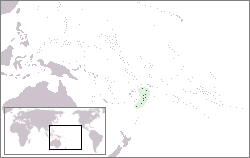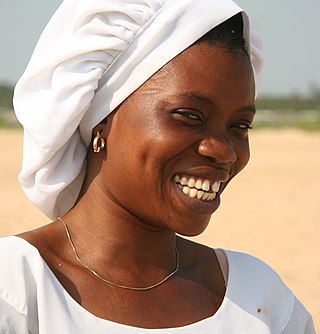Gender equality, also known as sexual equality or equality of the sexes, is the state of equal ease of access to resources and opportunities regardless of gender, including economic participation and decision-making; and the state of valuing different behaviors, aspirations and needs equally, regardless of gender.

Lesbian, gay, bisexual, and transgender (LGBT) rights in Nepal have evolved significantly during the 21st century. In 2007 Nepal repealed the laws against gay sex and introduced several laws which explicitly protected "gender and sexual minorities". The Nepalese Constitution now recognizes LGBT rights as fundamental rights. On 28 June 2023, a single judge bench of Justice Til Prasad Shrestha issued a historic order directing the government to make necessary arrangements to "temporarily register" the marriages of "non-traditional couples and sexual minorities". The government has not responded yet. If Nepal fully legalises same-sex marriage, it will become the first least developed country to legalize same-sex marriage. Nepal has not yet passed a national same-sex marriage law.

Women in Kyrgyzstan traditionally had assigned roles, although only the religious elite sequestered women as was done in other Muslim societies. Rural inhabitants continue the traditional Siberian tribal practice of bride kidnapping. Bride kidnapping, known as ala kachuu, girls as young as 12 years old are kidnapped for forced marriage, by being captured and carried away by groups of men or even relatives who, through violence or deception, take the girl to the abductor's family who forces and coerces the young woman to accept the illegal marriage. In most cases, the young woman is raped immediately in the name of marriage.[8]

The status of women in Nepal has varied throughout history. In the early 1990s, like in some other Asian countries, women in Nepal were generally subordinate to men in virtually every aspect of life. Historically, Nepal has been a predominantly patriarchal society where women are generally subordinate to men. Men were considered to be the leader of the family and superior to women. Also, social norms and values were biased in favor of men. This strong bias in favor of sons in society meant that daughters were discriminated against from birth and did not have equal opportunities to achieve all aspects of development. Daughters were deprived of many privileges, including rights, education, healthcare, parental property rights, social status, last rites of dead parents, and were thought to be other's property and liabilities. In the past century, there has been a dramatic positive change in the role and status of women in Nepal, reducing gender inequality. While the 1990 Constitution guaranteed fundamental rights to all citizens without discrimination on the basis of ethnicity, caste, religion, or sex, the modernization of society, along with increased education of the general population, have also played an important role in promoting gender equality. The roles of women have changed in various ways in the modern Nepalese society.

Women in the Democratic Republic of the Congo have not attained a position of full equality with men, with their struggle continuing to this day. Although the Mobutu regime paid lip service to the important role of women in society, and although women enjoy some legal rights, custom and legal constraints still limit their opportunities.

The status and social roles of women in Mali have been formed by the complex interplay of a variety of traditions in ethnic communities, the rise and fall of the great Sahelien states, French colonial rule, independence, urbanisation, and postcolonial conflict and progress. Forming just less than half Mali's population, Malian women have sometimes been the center of matrilineal societies, but have always been crucial to the economic and social structure of this largely rural, agricultural society.

Fijian cuisine has long-consisted of primarily foraged and farm-grown food. Although rice, wheat, and tea all became staples during Fiji's colonial era, native Fijians still eat primarily tubers and coconuts. The cuisine of Fiji is known for its seafood and various green vegetables, including ''ota'', a young forest fern, and ''bele'', a plant that resembles spinach.
Violence against women in the Philippines includes different forms of gender-based violence. The term "violence against women" is "the word or concept (that) has been used in a broad, inclusive manner to encompass verbal abuse, intimidation, physical harassment, homicide, sexual assault, and rape." This form of violence is gender-biased. Violence occurs precisely because of their gender, specifically because the victims are women.

Lesbian, gay, bisexual, and transgender (LGBT) persons in Tonga face legal challenges not experienced by non-LGBT residents. Male homosexuality is illegal in Tonga, with a maximum penalty of 10 years imprisonment, but the law is not enforced.

Women in Cambodia, due to the influence of the dominant Khmer culture, are traditionally expected to be modest and soft-spoken. They are to be well-mannered, industrious, and hold a sense of belonging to the household. It is expected that they act as the family's caregivers and caretakers, financial administrators, and serve as the "preserver of the home". As financial administrators, women can be identified as having household authority at the familial level. Khmer women are expected to maintain virginity until marriage, become faithful wives, and act as advisors to their husbands. Women in Cambodia have also be known as “light” walkers-- "light" walking and refinement of the Khmer women is further described as being "quiet in […] movements that one cannot hear the sound of their silk skirt rustling".
Tuvalu is a small island nation in the South Pacific, located North of Fiji and North West of Samoa. The population at the 2012 census was 10,837. Tuvalu has a written constitution which includes a statement of rights influenced by the United Nations Universal Declaration of Human Rights and the European Convention on Human Rights. While most human rights in Tuvalu are respected, areas of concern include women’s rights and freedom of belief, as well as diminishing access to human rights in the face of global warming. The latter has played a major role in the implementation of human rights actions in Tuvalu given its geographical vulnerability and scarce resources.

Fiji is an island nation in Melanesia in the South Pacific Ocean with a population of approximately 849,000. It is made up of Fijians, Indo-Fijians, Europeans, Chinese, other Pacific islanders, and people of mixed racial descent. Fiji has been in a state of political unrest since their independence from Britain in 1970.

Women in Benin have gained more rights since the restoration of democracy and the ratification of the Constitution, and the passage of the Personal and Family Code in 2004. These both overrode various traditional customs that systematically treated women unequally. Still, inequality and discrimination persist. "Girls from the age of five or so are actively involved in housekeeping, sibling care, and agriculture." Society could think about of a woman's role are a housemaid, caretaker, or babysitter. A woman's role is to be a housemaker and nothing at all, but women have much potential to be more than a housemaker. With laws taking charge of what a woman can be as a career of how they are being useful more in the house than in a men's job position. Moreover, these rules apply to women by their gender that has not changed for a while. And there has been inequality based on being the opposite gender which these rules should immediately change if the society wants to get better to have equality for the female race.

Women in Tuvalu continue to maintain a traditional Polynesian culture within a predominantly Christian society. Tuvaluan cultural identity is sustained through an individual's connection to their home island. In the traditional community system in Tuvalu, each family has its own task, or salanga, to perform for the community. The skills of a family are passed on from parents to children. The women of Tuvalu participate in the traditional music of Tuvalu and in the creation of the art of Tuvalu including using cowrie and other shells in traditional handicrafts. There are opportunities of further education and paid employment with non-government organisations (NGOs) and government enterprises, education and health agencies being the primary opportunities for Tuvaluan women.
Traditional gender roles in Egypt are prevalent and clearly defined. These roles are largely associated with traditional Islamic family structures, wherein women's roles are closely tied to the domestic sphere and men's roles tied to the public sphere. Gender roles are based on assumed biological differences between the sexes and can lead to dramatically different life experiences as well as opportunities and outcomes for individuals. Consequently, when looking at a number of indicators, women often find themselves disadvantaged relative to men.

Crime in Tuvalu is not a significant social problem due to small population, geographic isolation, and low development.
Violence against women in Fiji is recognised to be "pervasive, widespread and a serious national issue" in the Pacific Island region. Fiji's rates of violence against women are "among the very highest in the world". The Fiji Women's Crisis Centre reports that 64% of women who have been in intimate relationships have experienced physical or sexual violence from their partner, including 61% who were physically attacked and 34% who were sexually abused.
The Fiji Women's Rights Movement (FWRM) is a multi-ethnic and multi-cultural organisation based in Suva, Fiji, that works to remove discrimination against women through attitudinal changes and institutional reforms. FWRM believes in the practice and promotion of feminism, democracy, good governance and human rights. FWRM is known for its public opposition to military rule in Fiji since the first coup in 1987, and for its innovative approaches and core programmes related to intergenerational women's leadership in Fiji, particularly young, indigenous and locally-born women.

This article provides an overview of marital rape laws by country.
Human rights in Norway protect the fundamental rights of all persons within the Kingdom of Norway. These rights are safeguarded by Chapter E of the Constitution of Norway or Kongeriket Norges Grunnlov, as well as the ratification of various international treaties facilitated by the United Nations. The country maintains a dedicated commitment to human rights and was the second country to ratify the European Convention on Human Rights.














